Fans of Amy Ferris’s Facebook journal, “Post Coffee, Post Wine,” treasure the “Amy-isms” she comes up with on a daily basis. Like these:
Open carry your life.
No more crumbs.
Wear your scars like stardust.
Taking charge is way different than being in control. Take charge.
Ferris, photographed above with NextTribe founder Jeannie Ralston at a NextTribe event, started posting after the 2009 publication of her memoir Marrying George Clooney: Confessions from a Midlife Crisis, which she co-adapted into a 2012 satirical off-Broadway play about three menopausal, insomniac women trading hysterical and heartfelt cyber-confessions on everything from menopause, sex and ex-boyfriends to aging parents and hot flashes over a certain silver fox. Her followers leapt from four to hundreds literally overnight.
Hear more about messy love from Amy Ferris on Thursday, Oct. 19, when author Sherry Amatenstein will interview her live for NextTribe. RSVP to this free event here.
Already an editor, screenwriter (Mr. Wonderful), writing coach and member of numerous advisory boards supporting women and the arts, Ferris responded to her growing platform by doubling down on her fervent boosterism of women, encouraging them to become champions of their own lives. Her accomplishments include being named one of NextTribe’s Women of the Year in 2021, and Women’s eNews’ 2019 “21 Leaders for the 21st Century.” In the wake of Robin Williams’ suicide, she edited an anthology Shades of Blue: Writers on Depression, Suicide and Feeling Blue (I’m honored to be a contributor), and despite public speaking anxiety, the 68-year-old increasingly puts herself front and center to inspire us to bravery and risk taking.
The author of the just-released Mighty Gorgeous: A Little Book About Messy Love told me during our zoom interview: “Messy to me is living authentically, being honest. My junk drawers are not hidden!”
Read More: Secrets and Shame: How I Shook Them Off
Messy Love
SA: Many of us say, “If I’d known then what I know now I’d never have done–fill in the blank.” In my case I might have sidestepped marriage at 20 to a psychopath. But I digress: You begin your latest book with a recitation of some of the–um–bumps along the road: “I dropped out of high school, tried suicide, spent some time on a commune (I was thrown out for shaving my legs), got my GED at 17 and never went to college, filled my body with enough drugs to open a pharmacy and I slept with a gazillion wrong men whose first name was either Joe or David or I’ll call ya.” You not only dedicate Mighty Gorgeous to your younger self, your advice to young Amy is not to change a thing. Can you explain?
I would tell my younger self to do everything I’ve done.
AF: Everybody always says: “What would you say to your younger self?” A lot of people say, “Don’t date that guy” or “Don’t do this.'” I would tell myself to do everything I’ve done.
SA: Everything you have done has made you YOU! We met around Marrying George Clooney time at a Writer’s Retreat and it was instant kismet. I felt seen and known and accepted. I could have had snot on my forehead and you would still have hugged me. But for you, it’s instant kismet with almost every woman you meet either personally, virtually or through your all-veins-exposed writing. What do you think is behind this instantaneous connection you inspire?
AF: I acknowledge people’s pain through my own struggles. I acknowledge our imperfections. I acknowledge what people go through. I’m not saying, “Oh, get over it” “Let it go.” It’s easy to say, “Oh, in a couple of weeks you’ll feel better…This too shall pass.” Pain is something we need to go through. We need to feel. If we don’t feel it’s tough being a human and tough to understand another person’s pain. People are hungry for that.
Running Toward Pain
SA: As a psychotherapist I can testify that among people’s toughest struggles is to how sit with and process their pain. They run from it. You run toward it. Last month Ken, your beloved husband of 31 years underwent a cardiac procedure. He is 82 and understandably, you were a puddle. Yet, you kept your virtual community informed – letting us bathe you in love and support. Happily, he is home and doing well. You also shared extensively when Peter, your close friend of 40 years, died. That brings up a topic that women our age increasingly face: the inevitability of grappling with how to handle losing people we love.
AF: No matter how prepared we are, when you love hard, you lose hard. In the last two years Ken and I have had a lot of loss–whether it was COVID-related or something completely unrelated. But something we don’t talk enough about is the difference between mourning and grieving.
Pain is something we need to go through. We need to feel.
We grieve when something is unexpected and violent. We grieve when somebody we love is going through an illness–we want so desperately to make it better.
When my dad died, I didn’t grieve. I mourned the death of my father because it was unexpected and I loved him. We adored each other. But grieving to me was feeling like there were things that were left unsaid. I understood at that moment the difference between grieving and mourning a loss. I think when you love honestly and truthfully, you don’t go back to bed and not get out of bed. You want to remember that person. You carry them with you. They become so much a part of your cell structure. If they’re really good humans, they teach us and bring stuff out of us. We become better. I miss hearing Peter on the other end of the phone. I miss getting his little texts. We had such a platonic love affair. I loved him good and he loved me good.
The best we can do is be authentically ourselves, be good women and that’s something!
Politics and Sisterhood
SA: In addition to your personal confessions, you are very honest politically. You hold nothing back. Where do you get the courage to go public with statements that will instantly make you a target?
I got attacked during #MeToo for saying not every man should be thrown under a bus.
AF: I got attacked during #MeToo for saying not every man should be thrown under a bus. Women need to take responsibility. When I was younger if I sat at a bar and a man came on to me, it was my responsibility to say, “Get away from me.” It was also my responsibility to not go into his house. I just wish that women would focus more on raising the matriarchy rather than burning the patriarchy.
SA: You and I have had many conversations about how some of the deepest betrayals we have experienced have been at the hands of women. What would a true sisterhood look like?
AF: We would be more responsible for our words and actions. When we say, “Believe all women,” you can’t. Do you believe Marjorie Taylor Greene? True sisterhood would look like we were no longer victims. Like we were really powerful and stood up for the women we love and didn’t take shit from the women we don’t love. Not every woman is a sister of mine. True sisterhood means igniting the truth of who we are, not pushing that under the rug. There are a lot of women who are very cruel and vindictive. Not all men are bad. Most men have supported me and lifted me and championed me. I remember hearing Gloria Steinem say she’s never been more heartbroken than by a woman.
SA: How do we form true sisterhood?
Be forgiving of someone’s insecurities, be forgiving of someone’s imperfections. We don’t do that enough.
AF: That’s why NextTribe is so amazing. Between the pandemic and isolating, it’s been four years of internalizing, of longing to see friends we haven’t seen. Women need a community. We need space where we can share everything–the good, the bad, the ugly. I’m a huge fan of messy. Showing off your scars. Being proud of your scars, whatever they are. I wish humans would be more forgiving of others. I’m not talking about forgiving massive bad things–be forgiving of someone’s insecurities, be forgiving of someone’s imperfections. We don’t do that enough.
SA: What do you want readers to take away from this wonderful book?
AF: I would like for them to start loving themselves the way they want to be loved. All the times I was with the wrong men it was because I didn’t love myself. I would like for women to fall in love with their own lives and with their imperfections and flaws. Fall in love with the journey they’re taking. We’re all so fu–king imperfect. I think if we took better care of our own lives, we would see something very different.
When my grandmother died, she was 98. She never wore makeup. “Haimey,” she would call me–for years I thought my name was Haimey. She said, “Haimey, there are two things to remember. Always rinse your face after you wash it with cold water and it will keep your skin really tight. And don’t use any fancy products. Ponds is good.”
SA: Words to live by!

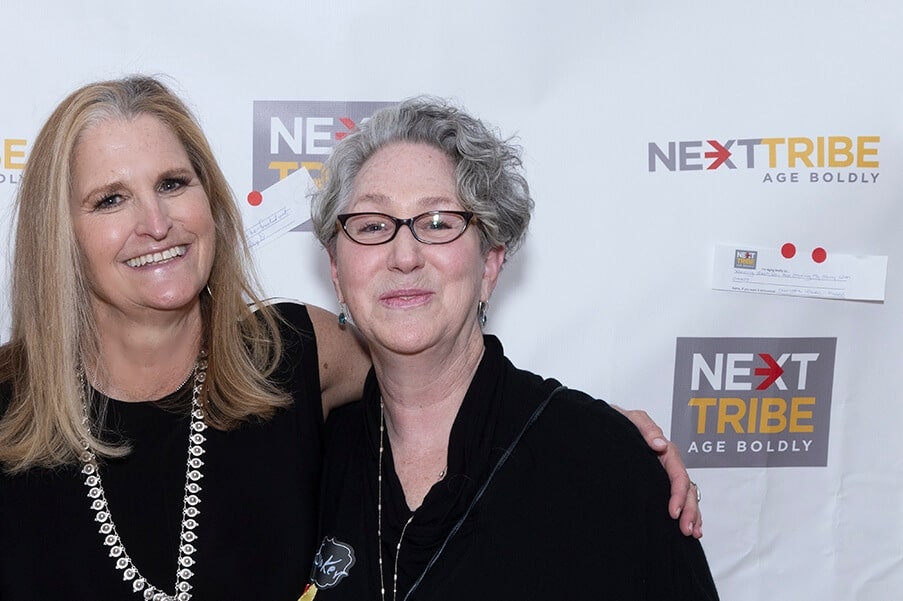

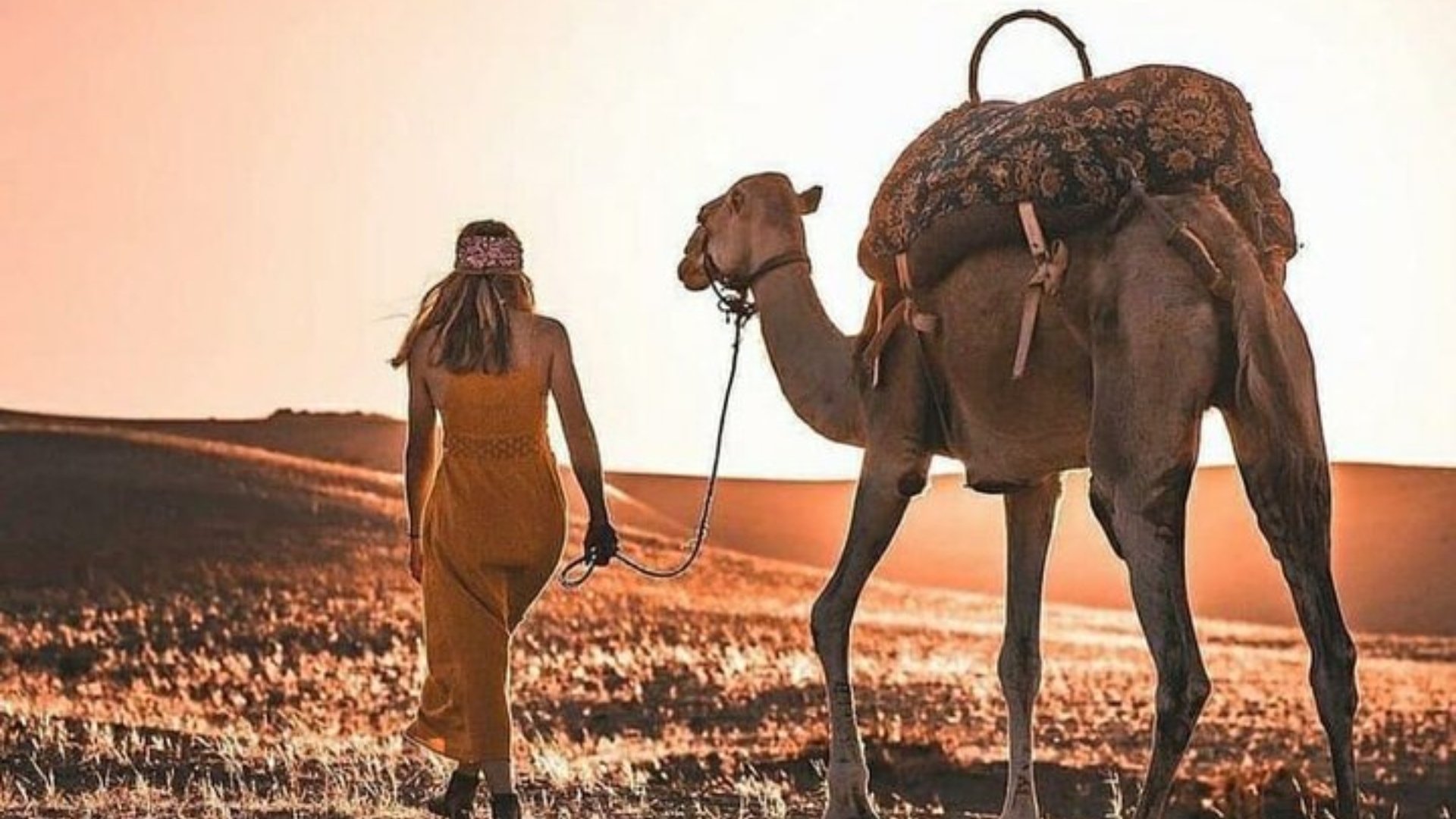


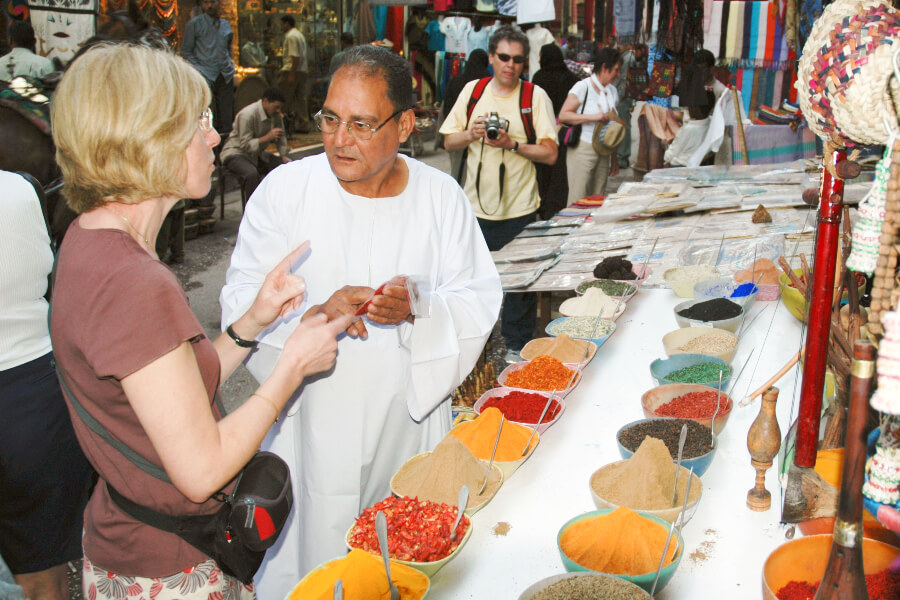
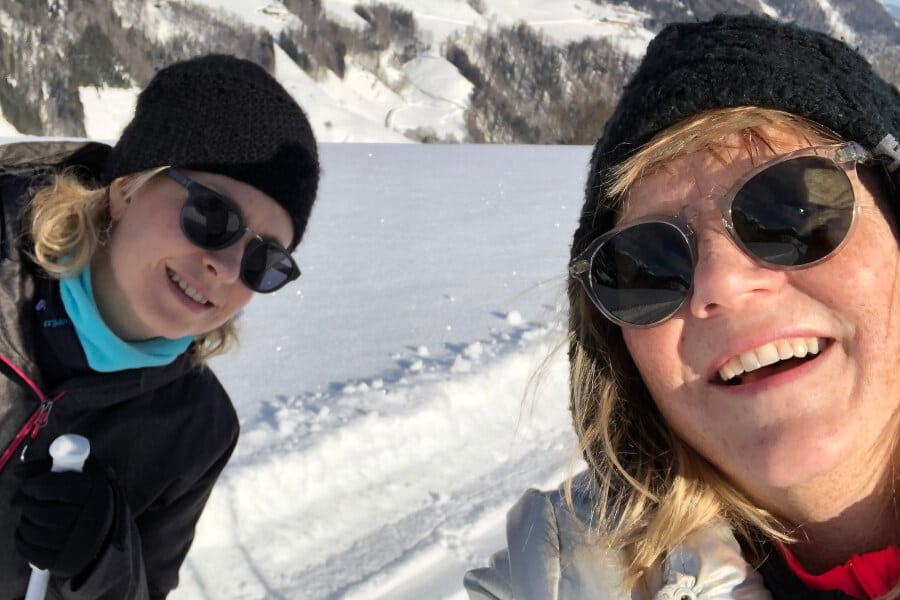
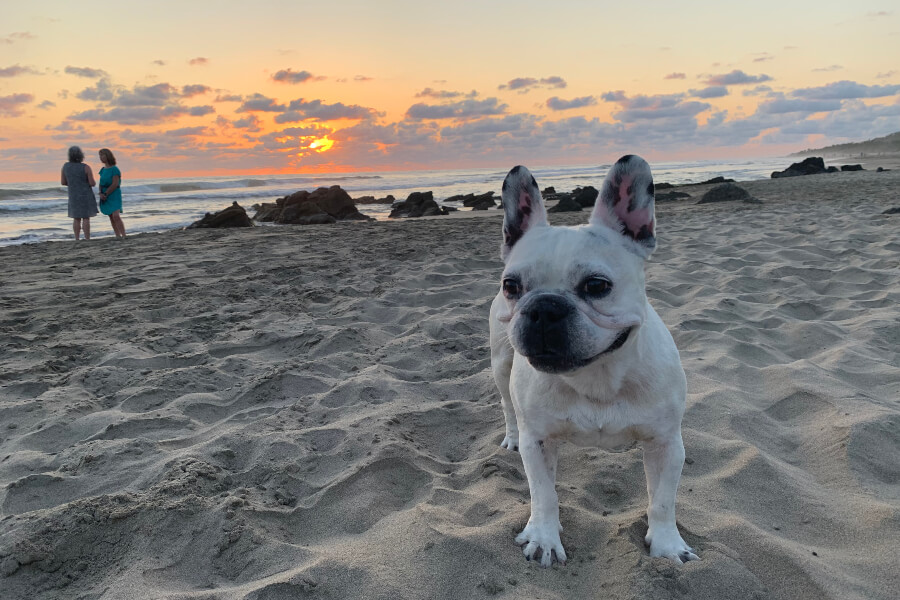

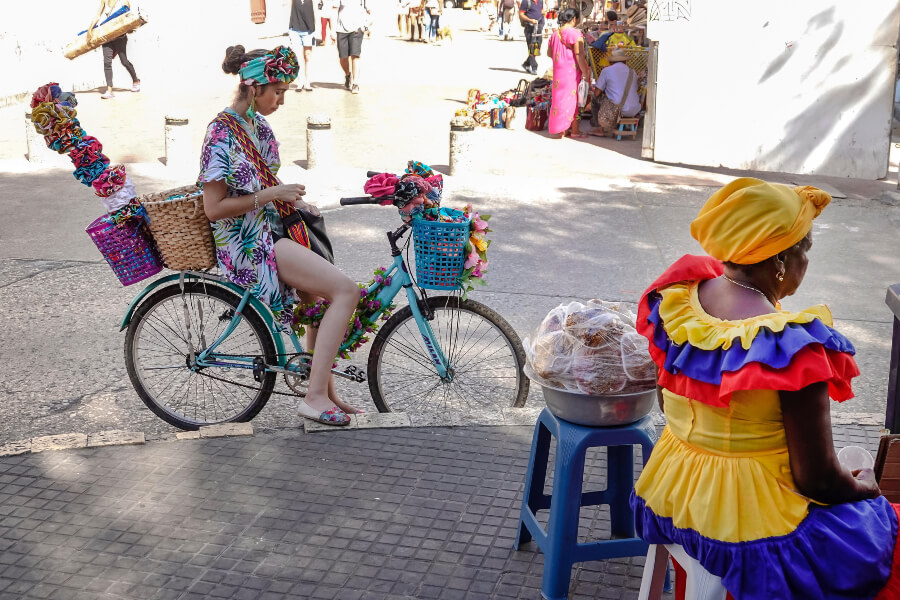

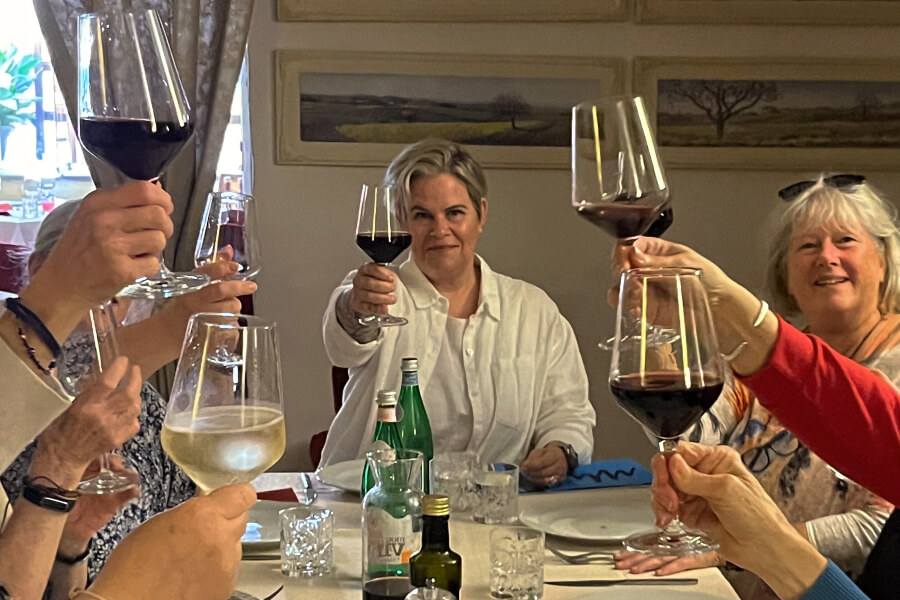


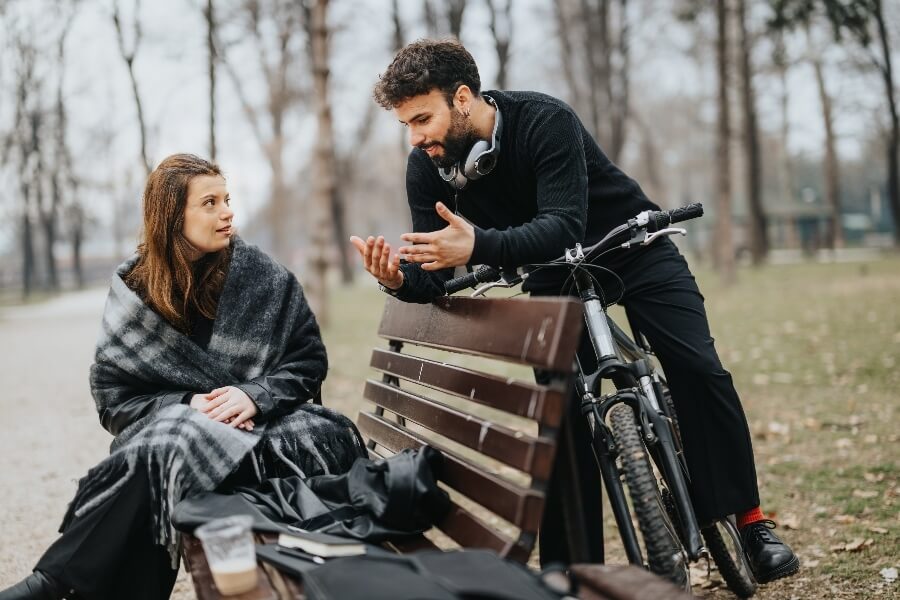




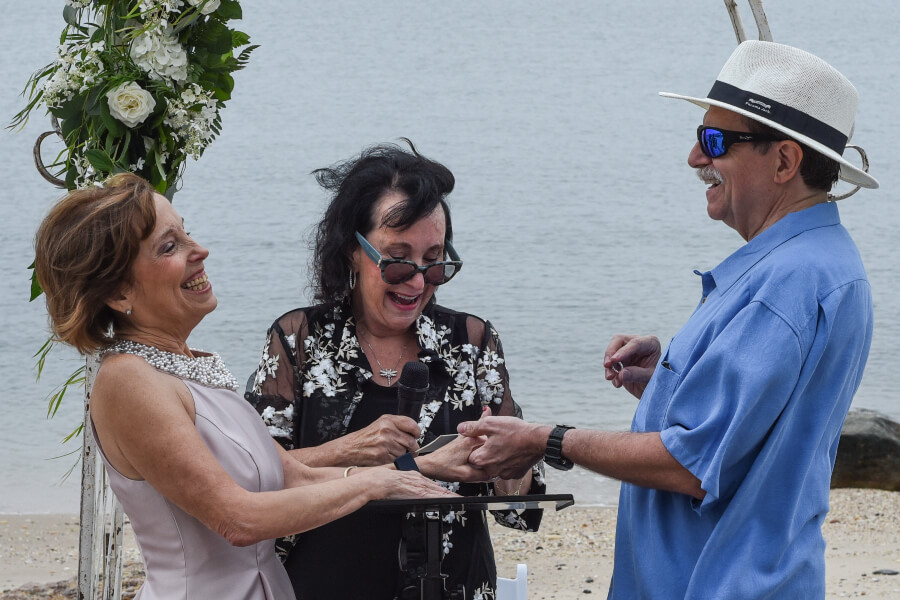
0 Comments